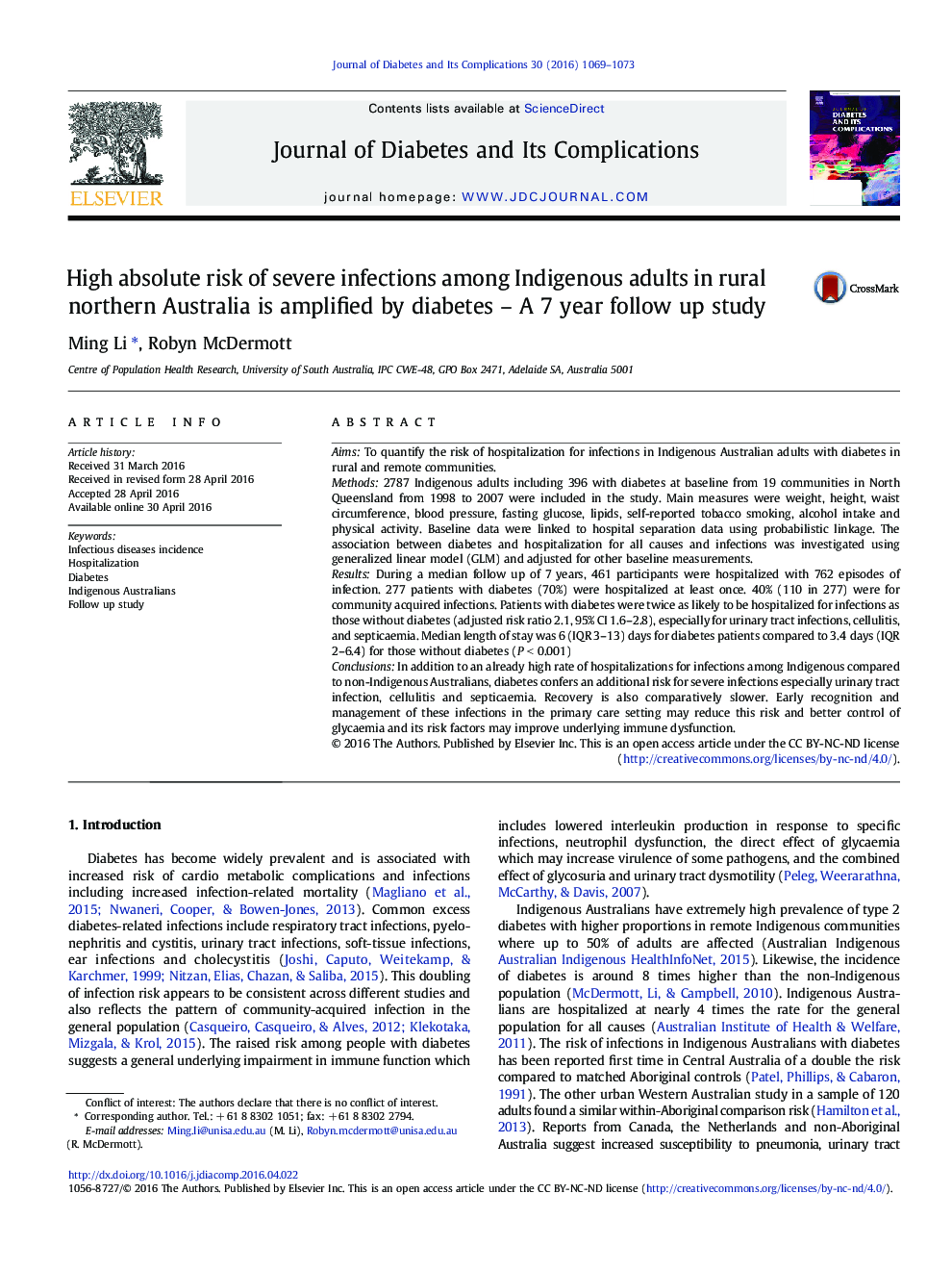| Article ID | Journal | Published Year | Pages | File Type |
|---|---|---|---|---|
| 5901948 | Journal of Diabetes and its Complications | 2016 | 5 Pages |
AimsTo quantify the risk of hospitalization for infections in Indigenous Australian adults with diabetes in rural and remote communities.Methods2787 Indigenous adults including 396 with diabetes at baseline from 19 communities in North Queensland from 1998 to 2007 were included in the study. Main measures were weight, height, waist circumference, blood pressure, fasting glucose, lipids, self-reported tobacco smoking, alcohol intake and physical activity. Baseline data were linked to hospital separation data using probabilistic linkage. The association between diabetes and hospitalization for all causes and infections was investigated using generalized linear model (GLM) and adjusted for other baseline measurements.ResultsDuring a median follow up of 7Â years, 461 participants were hospitalized with 762 episodes of infection. 277 patients with diabetes (70%) were hospitalized at least once. 40% (110 in 277) were for community acquired infections. Patients with diabetes were twice as likely to be hospitalized for infections as those without diabetes (adjusted risk ratio 2.1, 95% CI 1.6-2.8), especially for urinary tract infections, cellulitis, and septicaemia. Median length of stay was 6 (IQR 3-13) days for diabetes patients compared to 3.4Â days (IQR 2-6.4) for those without diabetes (PÂ <Â 0.001)ConclusionsIn addition to an already high rate of hospitalizations for infections among Indigenous compared to non-Indigenous Australians, diabetes confers an additional risk for severe infections especially urinary tract infection, cellulitis and septicaemia. Recovery is also comparatively slower. Early recognition and management of these infections in the primary care setting may reduce this risk and better control of glycaemia and its risk factors may improve underlying immune dysfunction.
